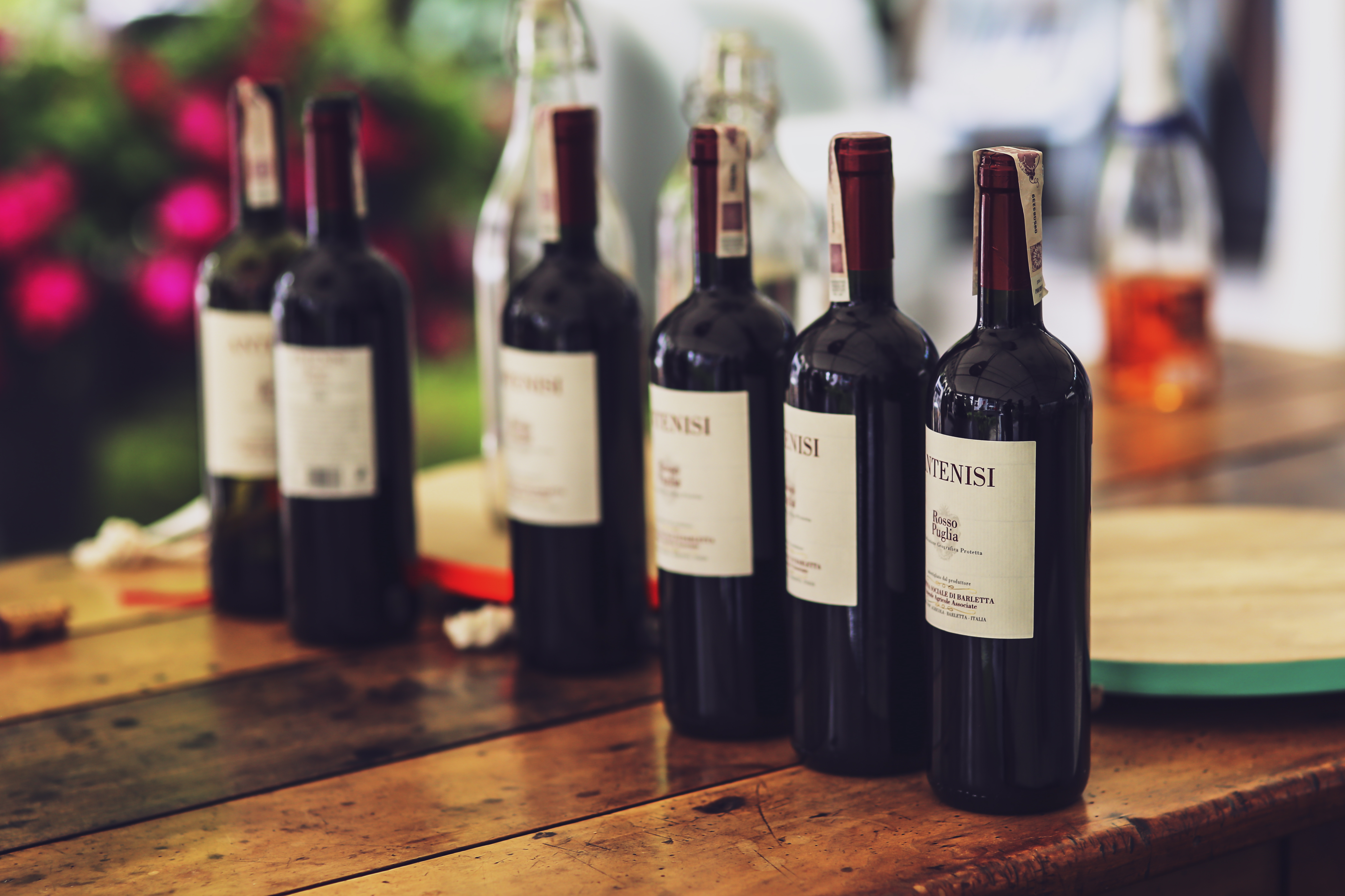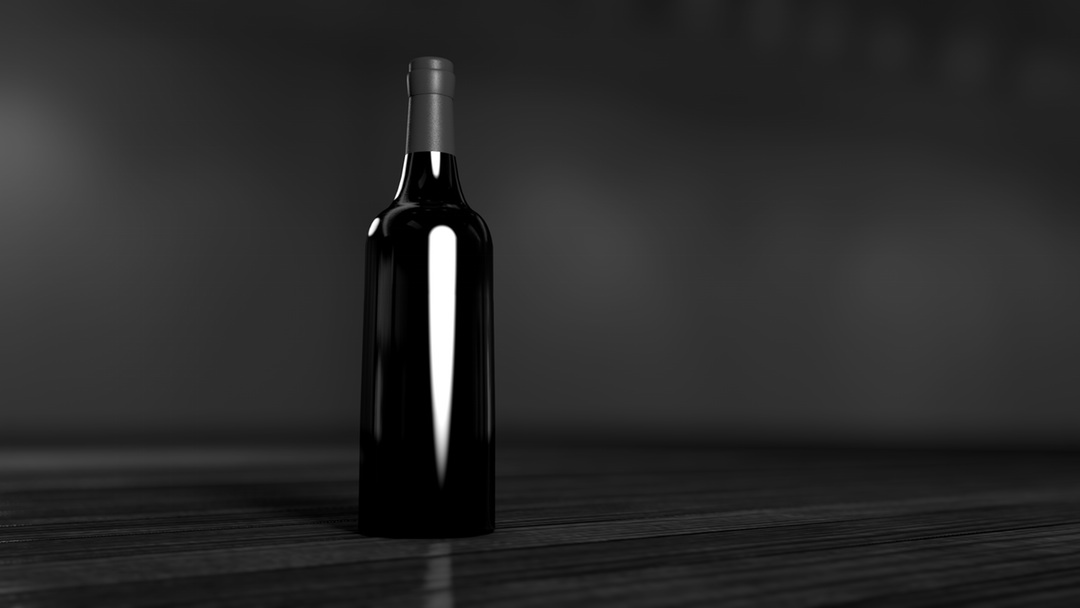Whether you enjoy a chilled glass of white on a beautiful summer’s day, or prefer a warming red, wine is always a firm favourite. However, it can be tricky knowing how to store and serve your wine so that you can enjoy it at its absolute best.
Today, we run through some common questions surrounding wine including how to store it correctly both before and after opening, and how to tell if it’s gone bad.
How Should I Store My Wine?
Been given a bottle of wine and want to save it for a special occasion? Storing wine correctly will ensure that when the time comes, you’re not popping the cork on a bottle of wine that’s past it best.
How to Store Wine with a Cork

Whilst many bottles of wine are purchased with the intent to consume them within a couple of days, some wines benefit from being kept and aged from anything from one year to twenty.
Red wines that age particularly well include, but aren’t limited to, Cabernet Sauvignon, Merlot, Shiraz, and Sangiovese. Whites such as Riesling and Chardonnay can benefit from ageing too.
The ideal temperature for storing wine ranges from between 11-14 degrees Celsius. Ideally the temperature shouldn’t fluctuate, so a wine cooler or cellar would be ideal for this. Fluctuations in temperature allow more oxygen to permeate in to the bottle, oxidising the wine and altering its flavour and smell.
Wine does not like the light, so keep your bottles somewhere dark. Exposing your wine to sunlight will heat it, and we want to avoid temperature fluctuations as much as possible. Keep it away from windows, pipes and radiators.
Ever wondered why bottles are stored on their sides rather than standing up? It’s to keep the cork in contact with the wine which will help to prevent it from drying out. A dry cork can shrink, crack and leak; allowing more air in to the bottle.
Humidity also plays a big part in the correct aging and storage of the wine. Again, in an ideal world, humidity of between 60 and 80% should help to prevent the cork from drying out. However, even if you store the bottle on its side and the base of the cork is in contact with the wine, the other side of the cork is still exposed to the air. If the conditions are too dry, the cork can dry out, shrink and crack, allowing air in to the bottle.
How to Store Wine with a Screw Cap
Screw cap top wines are a little less fussy than bottles that are closed with a cork. The same temperature rules apply (cool and dark), but you don’t need to keep the bottle on its side. The main reason for side-storage is to prevent the cork from drying out. No cork, no problem!
The polymer seal also prevents oxygen from entering through the cap, so oxidation is much less of a problem than with the permeable corks.
How to Store Boxed Wine
Ideally boxed wine should be consumed within 6-9 months of being “bagged”. As with bottled wine, keep it cool and out of direct sunlight. In the fridge or a wine chiller would be ideal.
How Long Can I Store Unopened Wine For?
In our fast-food society, many wines are designed to be consumed within a few days of purchase. However, this doesn’t mean that you can’t save them for a rainy day. When unopened, you can store your wine, under the right conditions, for approximately the following amount of time after its label date.
White wine: 1-2 years
Red wine: 2-3 years
Boxed wine: 6 months-1 year
Fine wines: Decades when stored correctly
Fortified wines: Anything from a year upwards
Of course, these are just guidelines for storage times. Even a great wine can’t withstand bad storage, so keep that in mind when putting bottles aside.
How Long is Wine Good After Opening?
If you’re anything like us, then you’ll never know how long your wine will last because there’s never any leftover (note: always drink responsibly). If you find yourself with a half-finished bottle of wine at the end of the night, this is how long you can expect it to stay fresh.

Sparkling Wine and Champagne
If you’ve popped a bottle of bubbly and fancy saving the rest then make sure you pop a champagne stopper in and get it in the fridge or wine cooler as soon as you can. Champagne or sparkling wine stoppers usually fit a little more snugly than standard wine stopper – this is to prevent all of those delicious bubbles from escaping. Getting it in to the fridge will also help to keep your bubbles intact longer because the carbon dioxide, the key to the fizz, is more soluble in cold liquid and therefore is retained better at lower temperatures.
Follow the above rules and you can expect your bubbly to remain so for up to three days.
White and Rose Wines
When it comes to lighter wines such as sweet, fruity whites and roses, oxidation really is the devil. Oxygen changes the flavours of the wine so get that bottle corked tightly and in the fridge. It’ll keep for anything between 5 and 7 days this way, but you’ll probably notice a tiny change in the flavour after the first day as the liquid has been exposed to the air.
For more full-bodied whites like Chardonnay, get them corked and chilled in the fridge and you’re looking at a lifespan of between 3 and 5 days. It’s a little shorter than the lighter whites because, despite still being a white wine, these variations have already been exposed to more oxygen during their ageing process, so will oxidise more quickly.
Red Wine
As with the white wines, how long your reds will last after opening depends on a few factors. If you’re looking to store a lighter red such as a Pinot Noir or a Grenache after it’s been opened then you need to get a cork in the bottle and store it somewhere cool and dark. This will give you up to 3 days extra life.

More full-bodied reds such as Malbec and Merlot will last up to five days when corked and kept somewhere cool. These wines tend to last longer because the tannin and acidity takes longer to break down. Even though red wine is served at room temperature, it’s best to keep it in a wine cooler after opening to prolong its life for as long as possible. If you don’t have a cooler, then putting it in the fridge is better than leaving it out on the side – just keep it in the door where it’s slightly warmer.
Fortified Wine
Oh, dessert wine, how we love you. Sweet and delicious, is there any better way to finish off a meal? Due to its sugary nature, bottles of fortified wine are rarely finished in a night. To store your open bottle, pop in the cork or a stopper and keep it chilled in the fridge. If you store it this way, you can expect your Port and Sherry to last up to a month. Madeira and Marsala can last for months when stored correctly as these variations have already been oxidised – great news!
Boxed Wine
Who doesn’t enjoy a good box of wine every now and then? Perfect for parties, boxed wines are convenient and will last for much longer than you might think! The airtight polyethylene bags used in the boxes prevent air from entering the bag, meaning that the wine inside can stay fresh for up to six weeks after the first glass has been poured. It’s worth noting though, that air can still get in to the bag if the spout is operated when the bag is upside down or on its side, though this usually only happens when you’re down to the last glass or so.
Can My Wine Expire?
How Does Wine Go Bad in the First Place?
As we mentioned above, oxygen really is the devil when it comes to preserving wine. As the liquid comes in to contact with the air, it starts to oxidise which changes the colour, flavour and smell of the wine.
Incorrect storage, either in temperatures that are too warm or too unstable, can also affect wine as it allows more air in to the bottle.
Some wines can just be bad from the start due to unhygienic practices in the winery, a bad batch of grapes, a bad cork, or bacteria.
How Can I Tell if My Wine has Gone Bad?
Identifying a bottle of wine that has turned is relatively straightforward using sight and smell alone.
Upon opening or re-opening a bottle, have a sniff of the wine itself. The different aromas can guide you on whether your wine is past its best. If it smells delicious, like wine, then it’s probably fine. However, if it smells of any of the following, we’d recommend requesting a new bottle if you’re in a restaurant, or throwing it out if you’re at home.
Wet dog or wet cardboard: suggests that your wine is “corked” and has been tainted by mould.
Farm animals: if your wine smells like a barn then it’s likely that your wine has been exposed to a yeast called brettanomyces. This can be due to poor hygiene in the winery, or the grapes themselves could have been affected prior to bottling. It’s likely the entire batch will be bad if you experience this, so don’t go seeking out another bottle of the same wine.
Vinegar or nail polish remover: that acidic, nose-burning scent is a sign of acetic acid bacteria at work.
Burnt rubber or cabbage: not exactly the delicious bouquet you were expecting. If your wine smells of either of these, there’s been a fault in the making process which has resulted in sulphur compounds being present in the liquid. Yuck.
No smell: your wine might be a little too cold. Try allowing it to warm up; leave the bottle open to aerate or pour some in to a glass and swish it round to release the aromas.
Once you’re finished giving your wine a good sniff, take a look at its colour, too. Both white and red wine will start to brown as it ages, but if you’re drinking a young wine, it should still be a vibrant colour.
Opened a normal bottle of wine and discovered that it’s slightly fizzy? This is a sign of fermentation in the bottle. It’s not dangerous but if you’re in a restaurant you may want to ask for another bottle.
Will Drinking Expired Wine Make Me Sick?
Drinking expired, bad, or tainted wine shouldn’t make you sick. Both red and white wines are antimicrobial and will actually kill any dangerous bacteria associated with food poisoning such as e-coli. However, the vinegary taste of bad wine will probably put you off drinking it all together.
So there you have it. Some of our most commonly asked questions surrounding wine answered! Just remember, when it comes to wine, the most important rule is to store it correctly. While it is possible to store wine in a fridge or at ambient temperatures, it is best kept where temperatures are consistent and tailored to the wine being stored. For that, there is no better solution than a wine cooler.
Sources:
The Wine Society, Shortlist, Taylors Wine, The Kitchn, EatByDate, The Fine Wine Reserve, Better Tasting Wine, Vine Pair, Wine Folly, Life Hack, Live Strong
Need more information on our wine coolers, try these handy guides:
Thermoelectric Vs Compressor Wine Coolers
Wine cooler buying guide
How to store open wine

